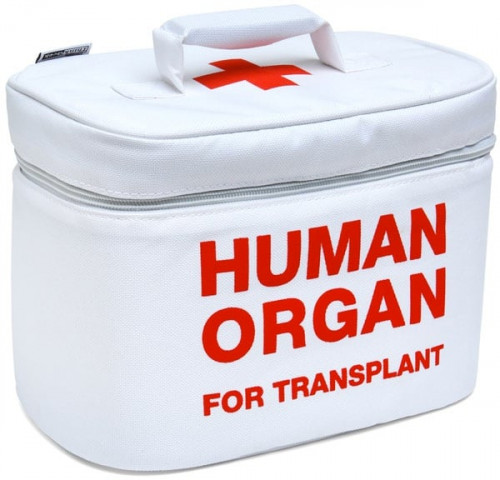Australian expert calls for adoption of ethical transplant practices in Pakistan
SIUT organises workshop to discuss renal transplantation

Doctors call for legislation to facilitate organ transplantation. PHOTO: laughingsquid.com
Professor Jeremy Chapman, a renal physician visiting from Australia who is also the editor-in-chief of the Transplantation Journal, made this call at a workshop organised on Friday by the Sindh Institute of Urology and Transplantation (SIUT). The workshop aimed to discuss various issues concerning renal transplantation.
SIUT carries out two successful liver transplants
"Organ transplantation is one of the important miracles of the 20th century for improving the lives and health of millions of people," said Professor Chapman, who is the director of renal medicine at Westmead Hospital in Sydney.
He pointed out that great sacrifices and clinical advances of dedicated health professionals and countless acts of generosity have established a shining example of human solidarity.
The visiting Australian expert, however, regretted that these accomplishments have been tarnished by numerous reports of trafficking of human beings who are used as sources of organs and of tourist patients from rich countries who travel to purchase organs from poor people.
Illegal organ transplants: Govt orders campaign against ‘heinous’ practice
Discussing various aspects of the illicit trade, Chapman said poverty and inequitable economic resources in many parts of the world are the main causes of this growing menace.
Unfortunately, Pakistan is one of the countries with a strong breeding ground for commercialisation of organ trade and unethical activities of transplantation, he said.
Earlier, SIUT Director Professor Adibul Hasan Rizvi welcomed the guest speakers, who included Dr Badar Mian from the United States, Deborah Kannage, Dr Jan Swin and Dr Germaine Wong.



















COMMENTS
Comments are moderated and generally will be posted if they are on-topic and not abusive.
For more information, please see our Comments FAQ